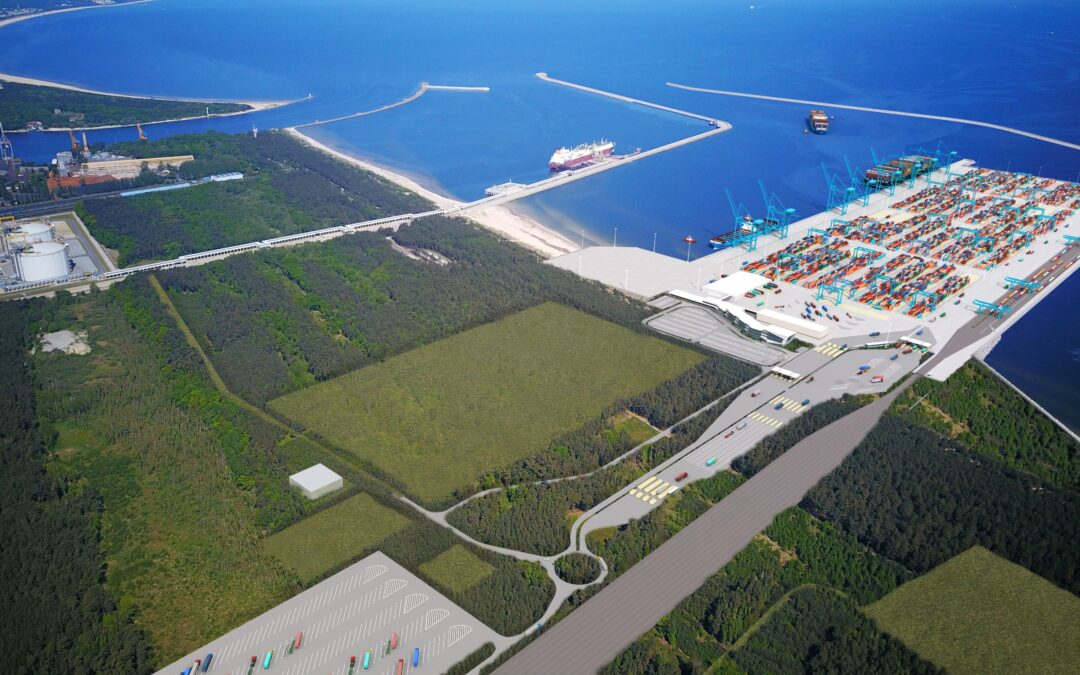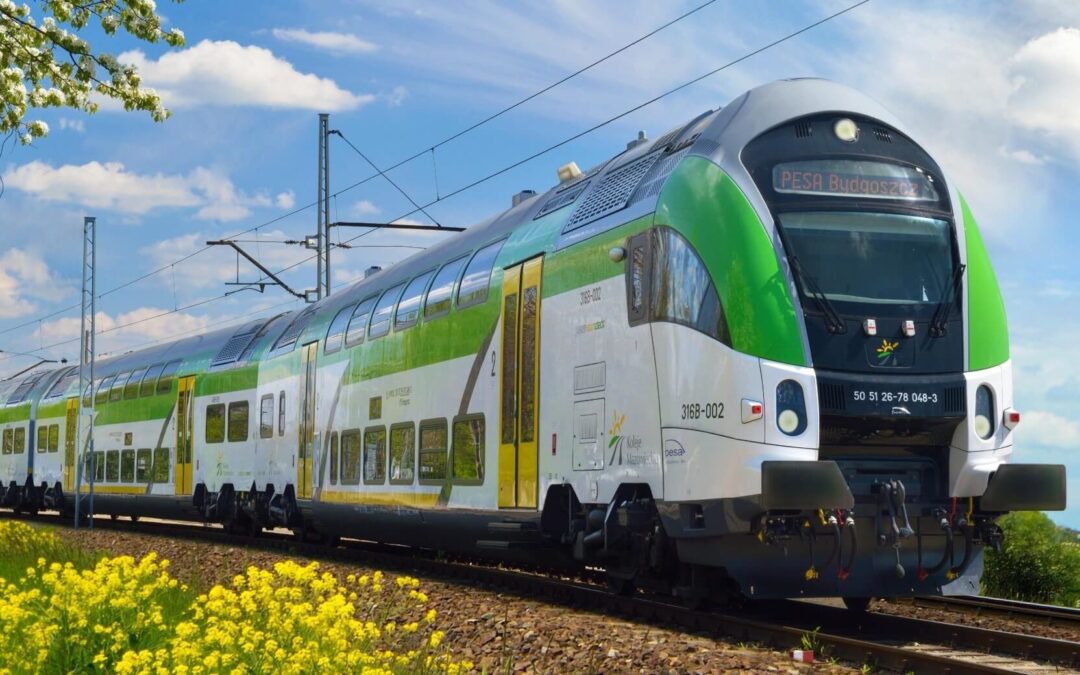Keep our news free from ads and paywalls by making a donation to support our work!

Notes from Poland is run by a small editorial team and is published by an independent, non-profit foundation that is funded through donations from our readers. We cannot do what we do without your support.
A German group has filed a legal challenge against the decision to grant environmental approval for a deepwater shipping terminal that Poland plans to construct in Świnojuście, near the border with Germany.
The organisation, Lebensraum Vorpommern, which describes itself as a “citizens’ initiative” demands the immediate suspension of the project’s environmental impact assessment, which was approved last month after Lebensraum Vorpommern’s earlier appeal was rejected.
Lebensraum Vorpommern has long opposed the planned terminal in Świnoujście, arguing that its location within a protected nature reserve and its role in accommodating eight gas extraction platforms “will lead to an environmental catastrophe”.
The group, backed by the German municipality of Heringsdorf, which sits just across the border from Świnojuście, contends that the Polish authorities failed to properly assess the project’s cross-border environmental impact.
“The Polish government is in the process of destroying the protected Wolin Baltic Sea coast – with dramatic consequences for the Pomeranian Bay and the people who live and work here,” Lebensraum Vorpommern said in a statement.
“Faced with the threat of further destruction of our coastal landscape due to possible gas extraction off the coast of Wolin, we want to send a clear signal in favour of environmental protection in the ecologically sensitive coastal waters of the Baltic Sea,” they added.
Lebensraum Vorpommern noted that its previous appeal led to minor amendments to the environmental assessment but that Polish authorities failed to address its primary concerns, including the exclusion of the maritime impacts of the terminal and its potential military use.
The municipality of Heringsdorf, meanwhile, warns that the terminal could result in “serious accidents involving oil and LNG tankers and towers producing toxic mixtures of gas and oil [which] would turn the entire Pomeranian Bay into a cesspool”.
According to German broadcaster Norddeutscher Rundfunk (NDR), Heringsdorf authorities also sought to take legal action against the project but do not have the right to file a lawsuit under Polish law. Instead, they have declared their support for Lebensraum Vorpommern’s case before Warsaw’s administrative court.
A planned new container port in northwest Poland has received final environmental approval after a legal challenge by a German NGO was rejected.
The deepwater terminal in Świnoujście will be built in a protected nature reserve near the border with Germany https://t.co/pTLDbLNuW2
— Notes from Poland 🇵🇱 (@notesfrompoland) February 4, 2025
Lebensraum Vorpommern’s legal challenge has sparked criticism from politicians associated with Poland’s conservative opposition Law and Justice (PiS) party, under whose rule the Świnojuście project was launched. They claim the lawsuit is less about environmental concerns than about protecting German economic interests.
“Another German organisation is trying to destabilise a Polish investment project that builds up competition for German economic entities,” said Stanisław Żaryn, an adviser to Poland’s PiS-aligned president, Andrzej Duda.
“This is a typical modus operandi used against Poland repeatedly,” he added in a post on X. “We must not allow ourselves to be cheated in this way.”
Meanwhile, Paweł Usiądek, a local leader of the far-right Confederation (Konfederacja), another opposition party, also weighed in, claiming that “the Germans do not like the fact that the Poles want to develop their terminal…so they are using ecology to stop it!”
“Thank goodness that German power stations and ports do not harm the environment,” he added ironically.
Niemcy skarżą Polskę: terminal kontenerowy w Świnoujściu im przeszkadza, więc używają ekologii by go zatrzymać!
Niemiecka organizacja "Lebensraum Vorpommern" złożyła skargę na decyzje środowiskową do Sądu Administracyjnego w Warszawie ws. budowy głębokowodnego terminala… pic.twitter.com/Cc04fWipZl
— Paweł Usiądek (@PUsiadek) March 27, 2025
The deepwater container terminal in Świnoujście is scheduled for construction between 2023 and 2029. It is to be built and later operated by a consortium of Qterminals from Qatar and Deme Concessions from Belgium.
The onshore part of the investment is to cost around 1.2 billion zloty (€284 million) while the approach channel is estimated at 10 billion zloty and a pier at 2.5 billion zloty.
The new terminal is expected to allow 400-metre-long ships access to the port and will have a target handling capacity of 2 million TEU (twenty-foot equivalent unit – the size of a standard shipping container) per year.
For comparison, all of Poland’s existing ports handled 3.27 million TEU of containers in 2024, up 9.3% from 2023. The port of Gdańsk, the fifth-busiest in Europe, handled 2.2 million TEU.
Gdańsk in Poland has become the EU’s fifth-busiest port, overtaking Algeciras in Spain and HAROPA in France, the latest @EU_Eurostat data show.
Meanwhile, national data show that Poland’s ports reported record financial and operational results in 2024 https://t.co/q4QFf8df2G
— Notes from Poland 🇵🇱 (@notesfrompoland) January 15, 2025

Notes from Poland is run by a small editorial team and published by an independent, non-profit foundation that is funded through donations from our readers. We cannot do what we do without your support.
Main image credit: Port Szczecin

Alicja Ptak is deputy editor-in-chief of Notes from Poland and a multimedia journalist. She has written for Clean Energy Wire and The Times, and she hosts her own podcast, The Warsaw Wire, on Poland’s economy and energy sector. She previously worked for Reuters.



















